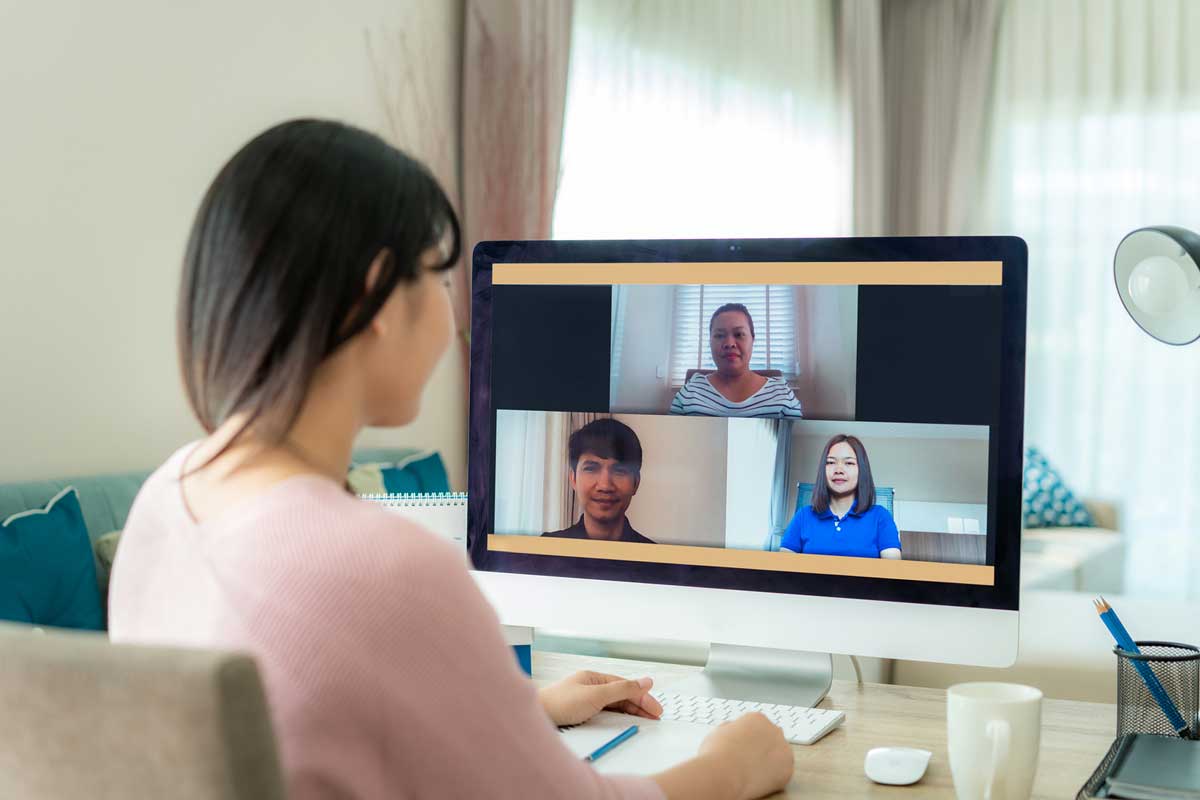Online therapy won’t be going anywhere — it’s boomed in popularity due to the COVID-19 pandemic, and experts predict that it will remain popular even as the pandemic recedes into the past. But if you’re used to getting therapy in person, you might be concerned that it just won’t work over a webcam. And it’s true that online therapy isn’t for everyone.
You need to be comfortable with technology and have a fast internet connection. It helps if you’re good at talking about your feelings — you’ll have to verbalize them more clearly than you might in traditional therapy. You’ll also need to be able to make space in your life for therapy sessions, without the privacy and structure of regular office visits. Here’s how to decide if online therapy is right for you.
You Need a Fairly High Comfort Level with Technology
It probably goes without saying, but you need to be comfortable enough with technology that you can use a video conferencing app to attend sessions via webcam. Depending on your needs and your therapist, you may also need to know how to use instant messaging apps, and of course regular phone calls with your therapist are also an option.
Most people already know how to use video chat apps like Skype and Zoom, but your therapist or online therapy provider may want you to use a different program. Online therapy platforms often have their own apps, and even if you’re not going through an online therapy platform, your therapist may want you to use a more secure app than Zoom.
You can always learn how to use the apps you’ll need, and you can keep a backup method of communication, such as a voice call on the phone, in your pocket in case something interrupts your session (and no matter how good you are at technology, eventually you probably will have some technical issues that could interrupt a session). You’ll also need a fast home internet connection — if you can’t stream video over your connection, you can’t have an uninterrupted video call.

You’re Good at Putting Your Feelings into Words
Whether you choose online therapy in Illinois or in-person therapy, you’re going to need to talk about your feelings. When you see a therapist in person, though, he or she can intuit much about your emotional state from your body language, facial expressions, tone of voice, and other nonverbal communication. Those hints may not come across over a webcam, however, so you’ll need to use your words to describe any feelings that come up during the session. Of course, if you’re someone who struggles to talk about your feelings, that’s okay — you can bring this up with your therapist and they can help you work on it in sessions.
You Can Carve Out Space in Your Home and Life
You can learn to use Zoom and you can buy faster internet (unless you really do live in the middle of nowhere). You can even get really good at talking about your feelings. But making private space in your home and life so you can attend online therapy without interruptions may be more difficult.
Maybe you live in a small home and don’t have a spare room or even a spare corner to retreat to for your therapy session. Maybe you have a lot of kids who won’t leave you alone for even an hour a week. Maybe you’re living with an unpleasant partner, parent, or other family member who doesn’t like the idea of you possibly talking about them with a therapist, so that they try to sabotage your sessions or even just listen at the door.
To be beneficial, you need strict confidentiality around your therapy sessions, which means you need to be able to set boundaries with those in your life, and you need to be able to trust that those boundaries will be respected. You also need a comfortable, quiet, private space where you can do therapy. Ideally, you’d want to be able to go into a room and shut the door for total privacy. If you don’t have a space like that, you could ask your family or roommates to get out of the house during your therapy time.
Online therapy can be just as effective as in-person therapy, but the format means it’s not right for everyone. Make sure you know what you’re getting into before you begin online therapy, so you can be prepared to get everything you need out of it.

